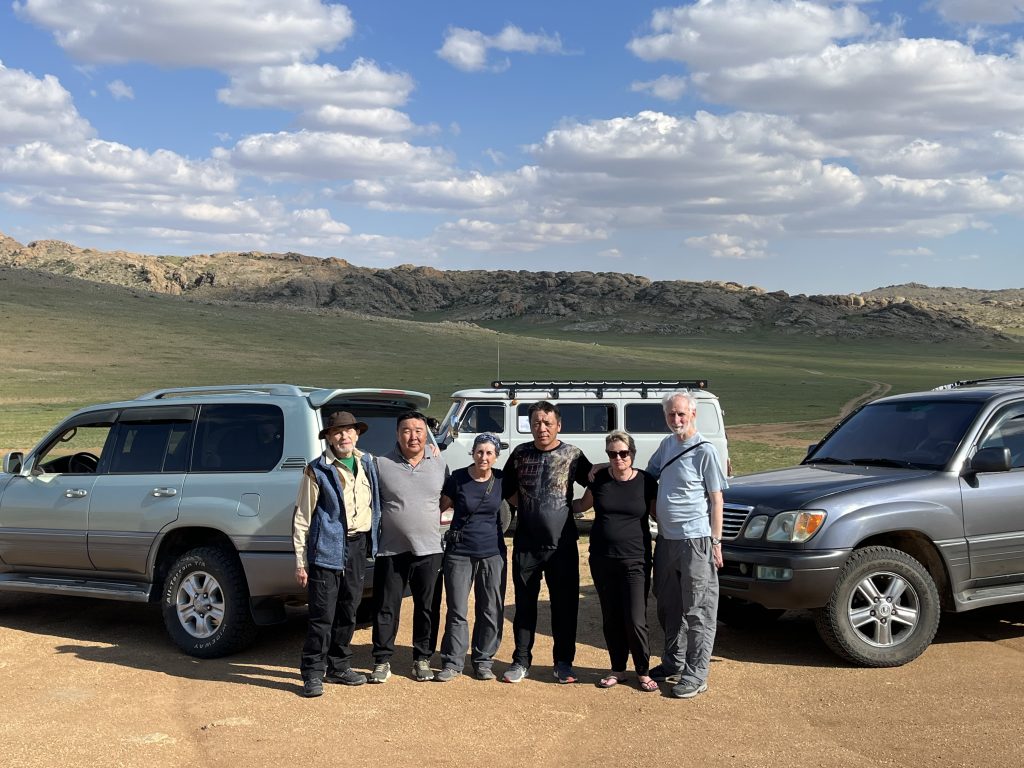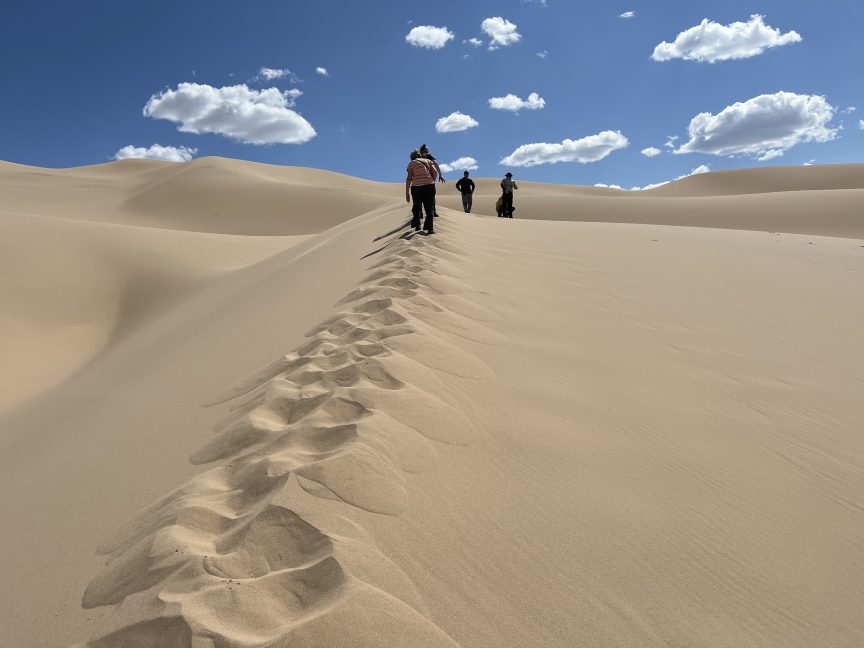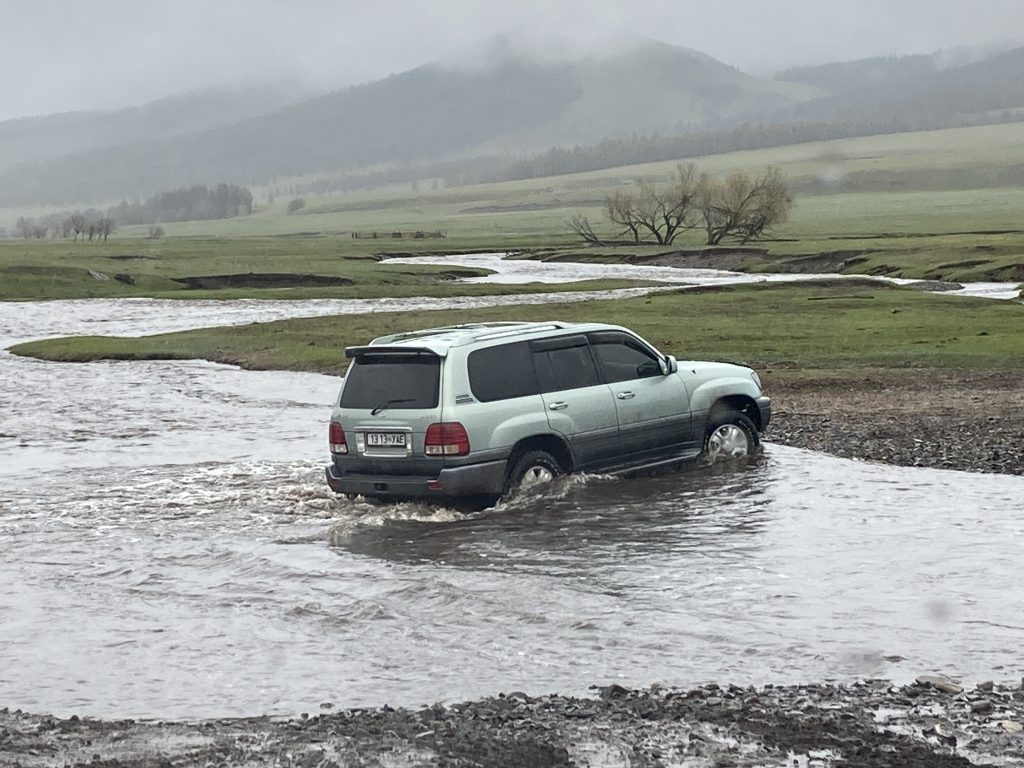
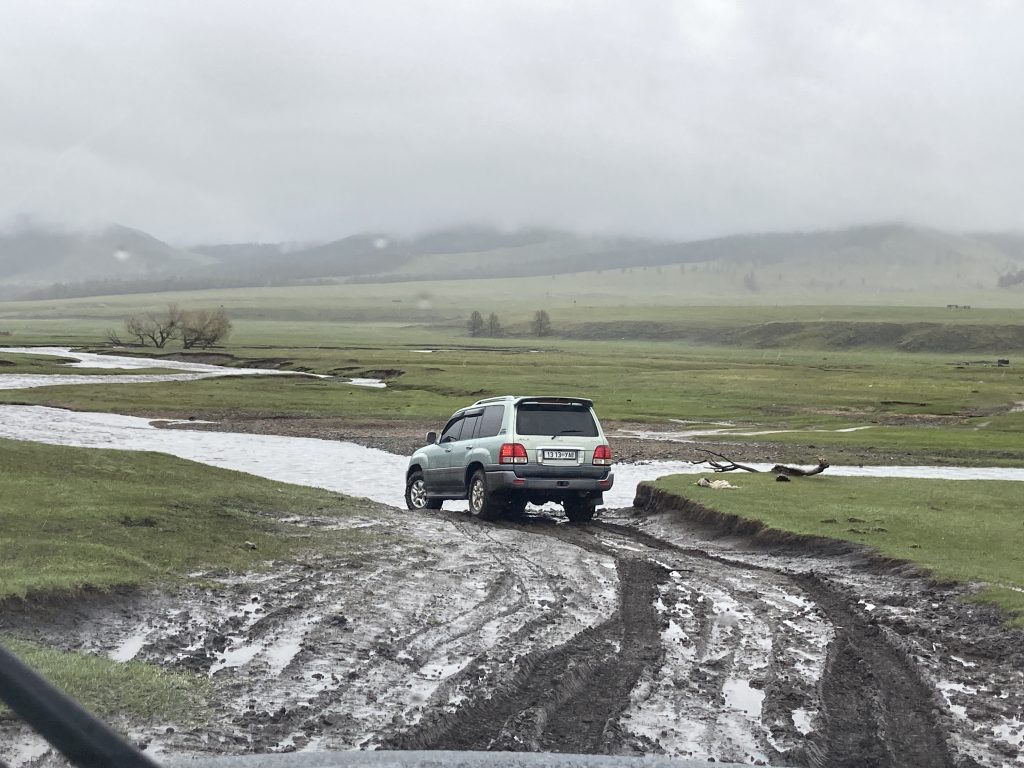
Before coming to Mongolia, I hadn’t really thought of the country as wet but as we drive north the steppe becomes one big mud pool intersected by newly formed creeks some of which are becoming rivers before our eyes. Our drivers expertly seek out the lowest crossing points, and though miraculously we never needed low range, they did lock the hub caps of the vehicles often as we slid this way and that.
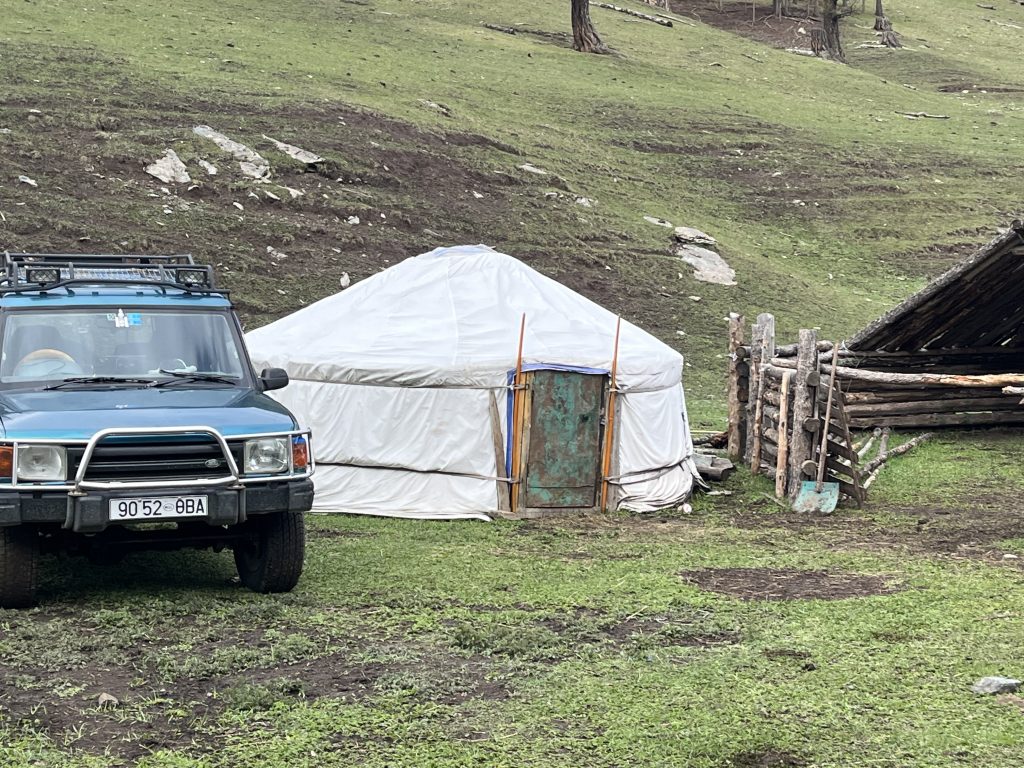
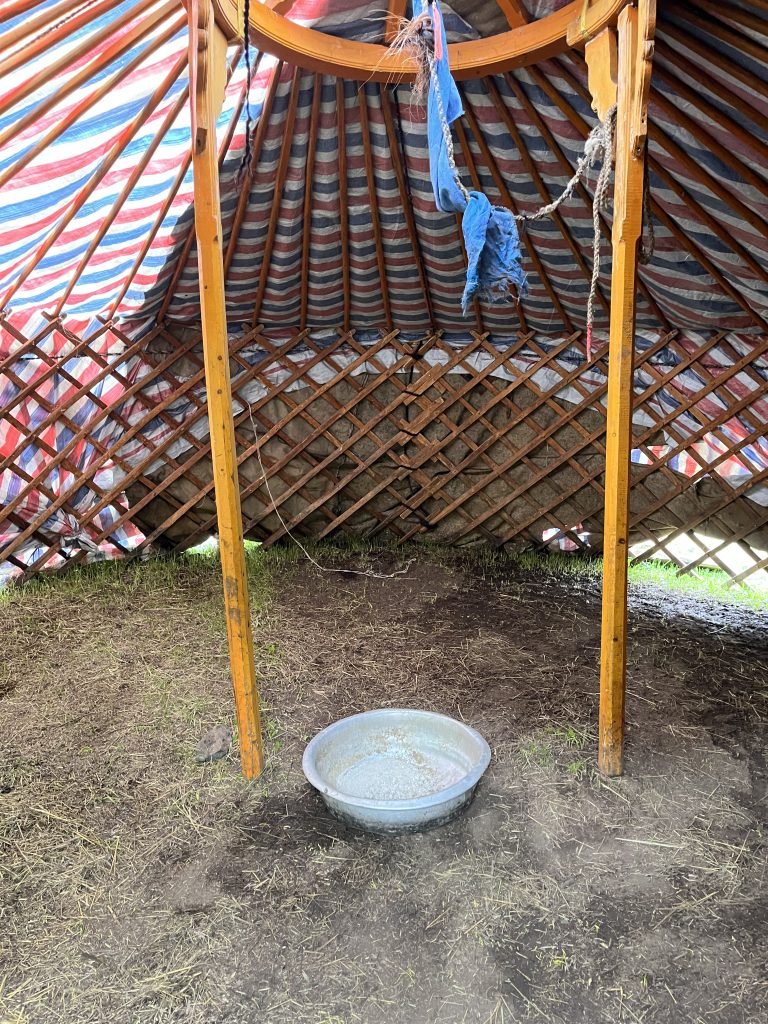
In the Orkhon Valley we are invited to help take down, fold up, move and re-erect a ger. There are no allen keys, no numbered parts. This ger is used to house live-stock too young to easily survive the weather. We are moving it closer to the tourist camp because the couple whose animals live there, also work at the camp.
I am certain we are more of a hindrance than a help and stand aside to take photos and notes. Barah and Meager, our drivers, obviously know what they’re doing and appear extraordinarily useful. Perhaps their skill makes up for our mistakes.
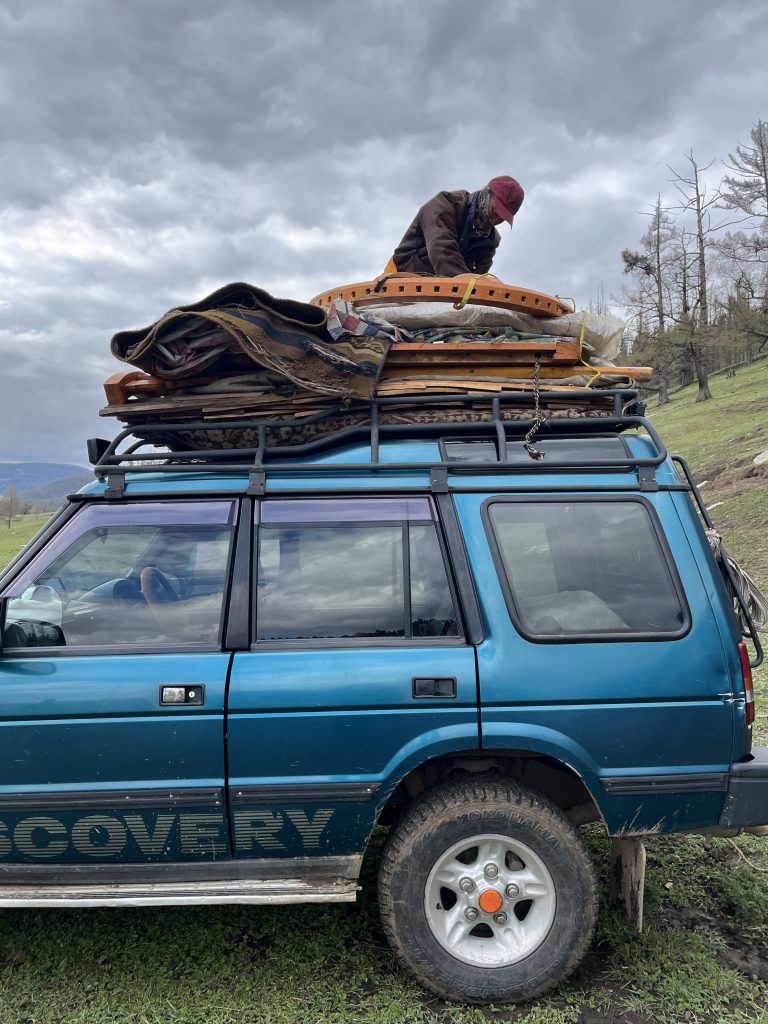
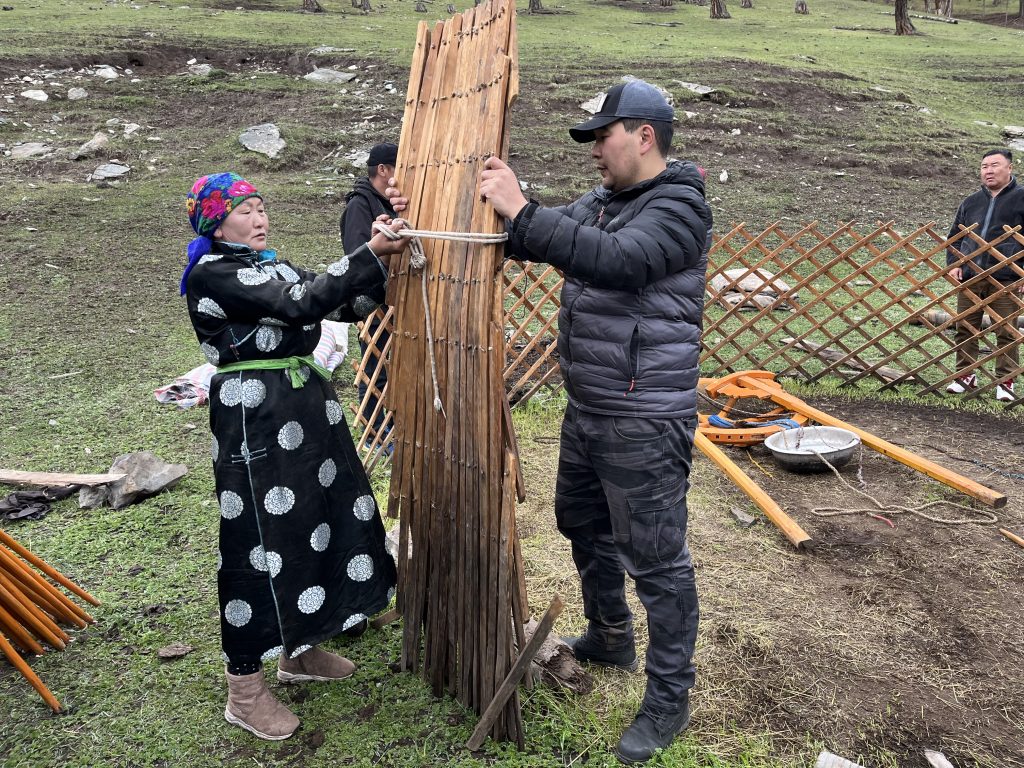
The couple, like most Mongolian nomads, sell milk. It is collected by milk trucks that move from ger to ger, then cart it to a processing plant where it’s turned into packaged milk or other dairy products such as cheese, curds, and yoghurt drinks. The nomads sell wool to the manufacturers of Mongolia’s famous cashmere products. One of my trip-mates is disappointed she cannot buy some wool; she is a knitter. Apparently, all the wool is bought up by the cashmere companies. The nomads sell meat too. As whole beasts or parts of them. And all of a sudden the entire ger we were moving was on top of the 4WD.
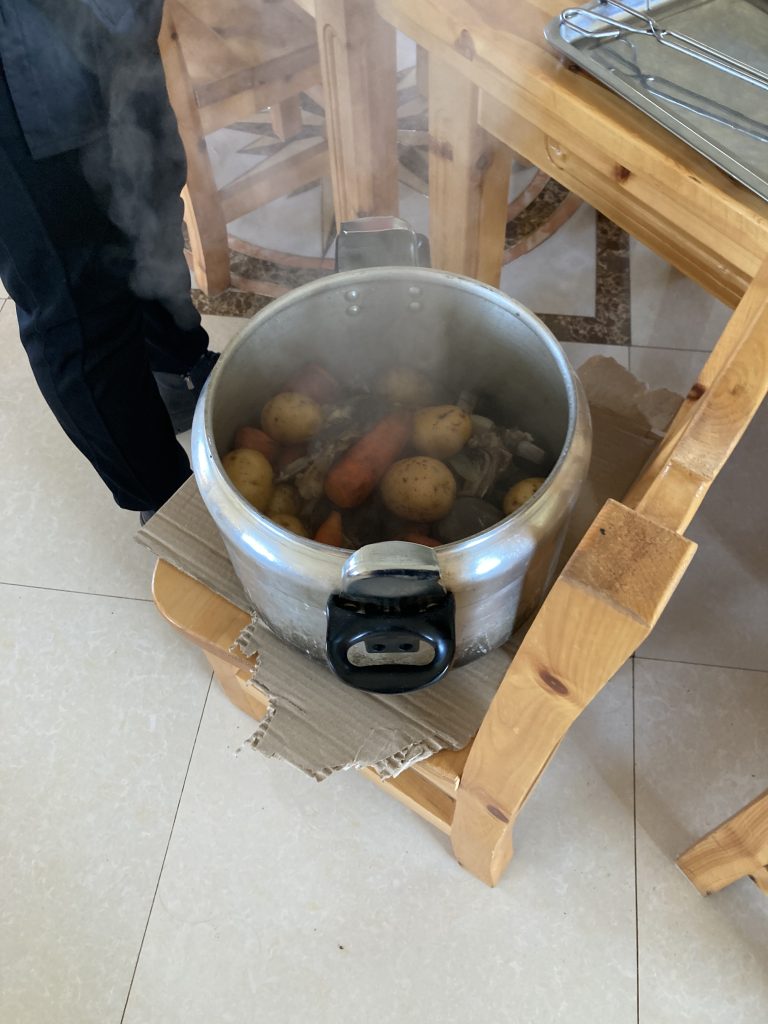
The night we ‘help’ with the ger, our camp kitchen feeds us Mongolian BBQ with a leg of mutton and vegetables cooked in a metal pot stocked with hot stones to cook the dish and seasoned onions and garlic. This cooking method probably began as an under-ground cooking method like the Maoris do in New Zealand and the Hawaiians do.
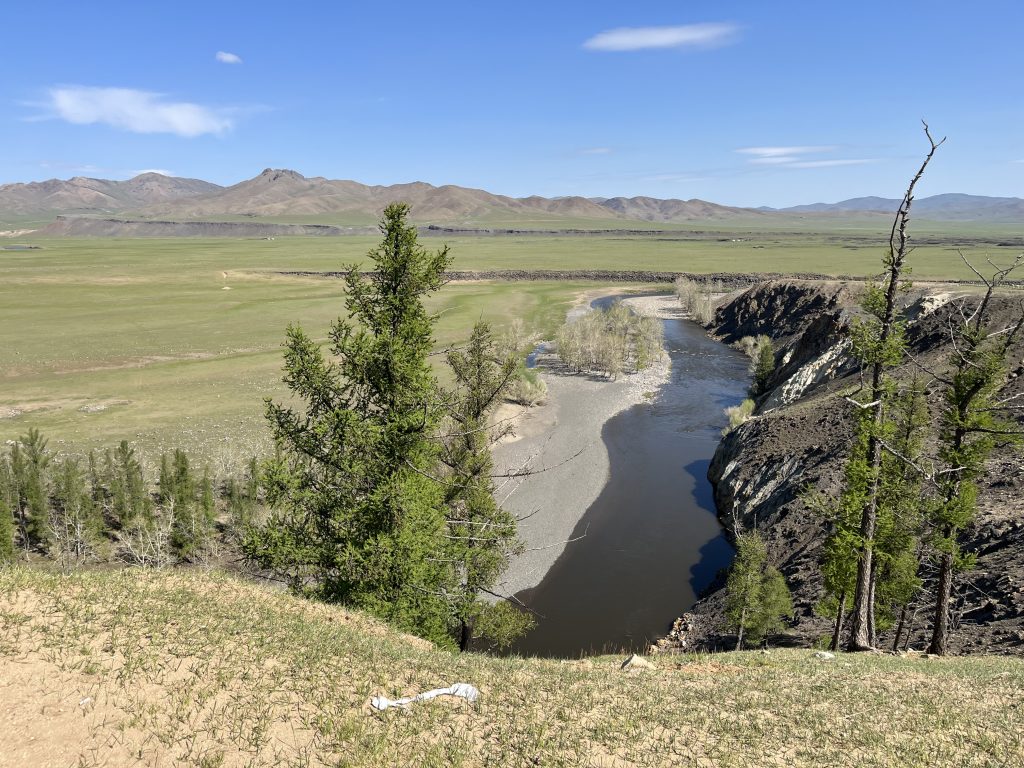
Next day we stop at a lookout point above a fast-flowing river running parallel to an ancient lava flow. Gannah tells us the bodies of hundreds, if not thousands, of monks were disposed of in the river after the monks were murdered by the Communists because they protested against the invasion. It’s a story we hear again. And again.
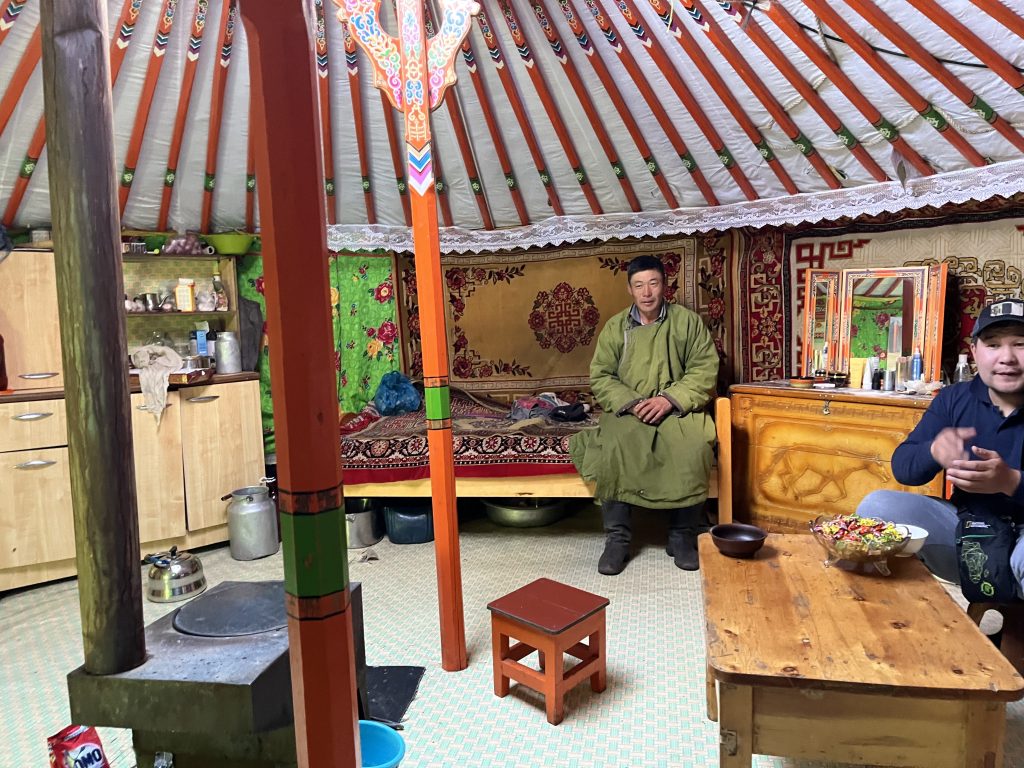
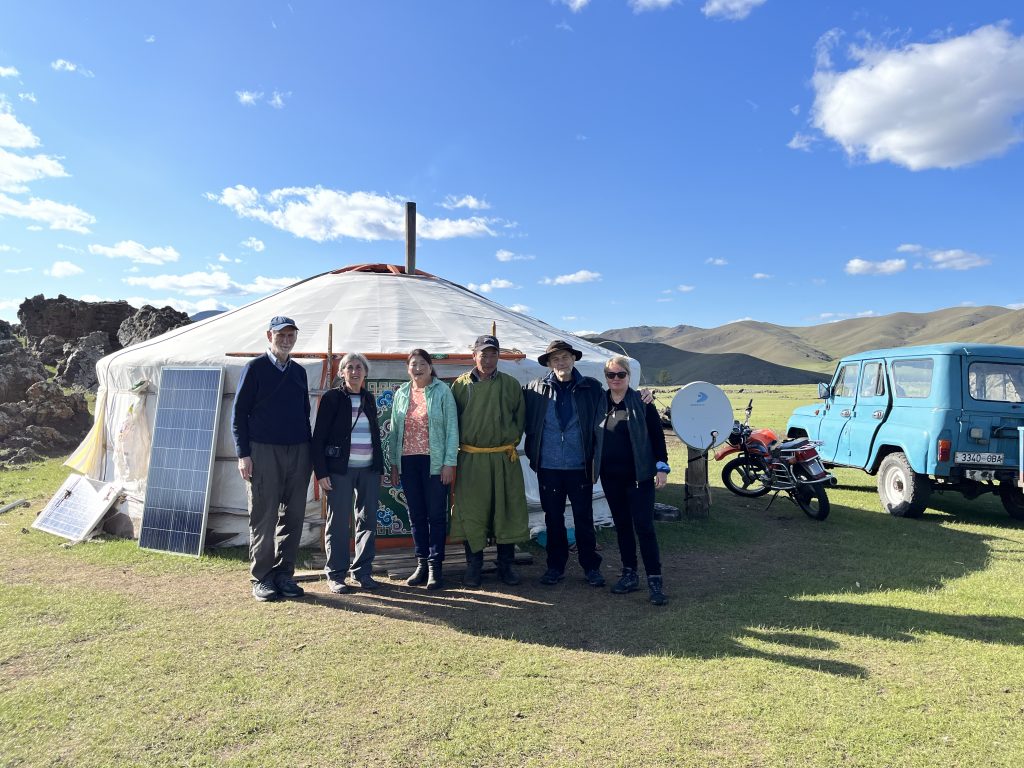
We visit another nomadic family in their ger. The two children are away for the week at boarding school. When they’re at home they share one single bed while the parents share the other. This family has one hundred goats and sheep, twenty horses, and thirty yaks. Sounds like more than a full-time job to me. They have a TV and a fridge, both running off a solar panel with a battery.
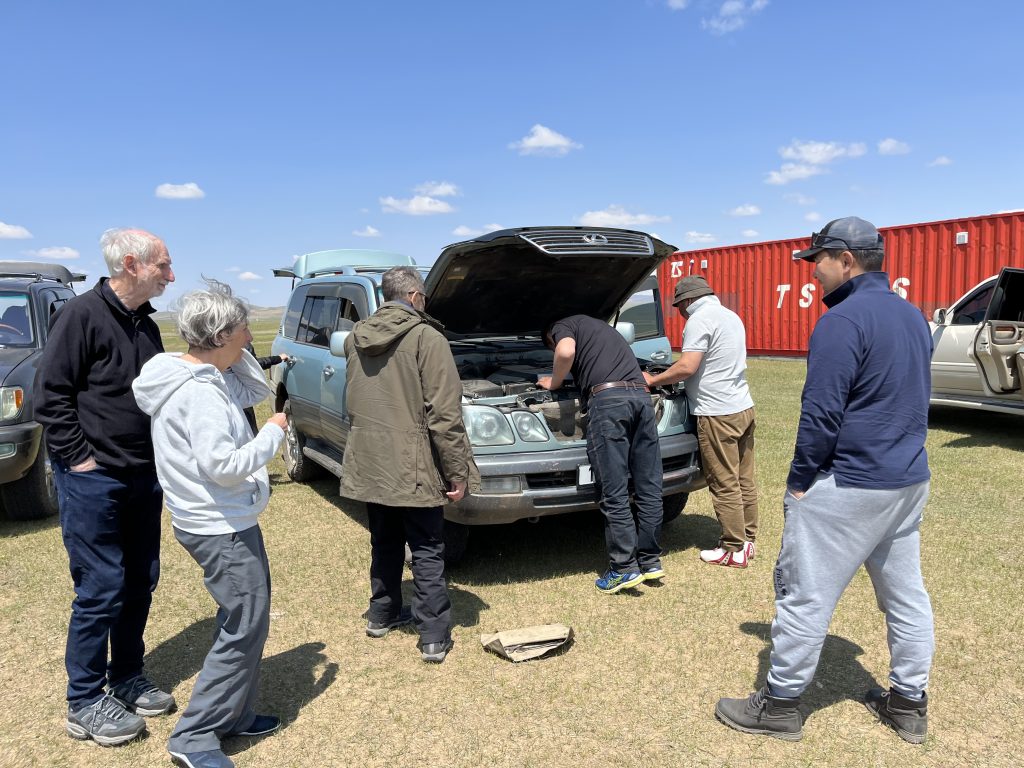
Back on the road, we have lunch in a restaurant made from three joined shipping containers sitting beside an actual bitumen road. It’s the first bitumen road we’ve seen since turning off the highway soon after leaving the city. Today, we have been driving on first wet, then bumpy, dirt tracks for four hours. After lunch, we five tourists, our guide and our two drivers have just hopped into the two vehicles when Meager gets out and puts the car hood up. Uh Oh.
Four hours later he and Barah have found a replacement starter-motor in a town thirty kilometres away and fitted it. We all hold our breath as he tries to start the vehicle. Success, though it sounds like the engine is running a little rough to me. It’s another four hours before we pull into the camp for the night. We have sped over dirt tracks so bumpy it feels like the bones in my spine have been scraping against each other. I feel like I’m going to vomit.
We are the last group into the popular ‘Secret History of Ongi’ tourist camp. I can’t stomach dinner but I can drink wine. A local man plays an instrument not unlike a guitar and for one song a short but supple woman in a finely decorated robe dances.

As at dinner the night before and at lunchtime, the breakfast music is a Mongolian band called ‘The Hu’. This rock band incorporates throat singing and we’ve become so accustomed to it we might, if we understood Mongolian, sing along. It must be topping of the charts currently and might well win Eurovision if it was allowed to compete.
We visit another ruined temple complex, once home to 1000 monks. The Communists destroyed this too and killed two hundred monks while the remainder were forced to serve in the Red Army.
Our guide, we all agree, seems a bit more pro-Russian than we thought he might be (though who are we to say?) I eventually quiz him on how most Mongolians regard Russia and he replies there are two camps: those who are outspoken against Russia and the war over the Ukraine (mostly younger people) and those who think shutting their mouth is a better idea. But no one thinks the war is a good thing.’ ‘All our fuel comes in from Russia and they could turn off the tap at any moment.’ Other goods and services come from the north too. Of course, on their southern boarder is China so their position seem to me – as perhaps it has been since Chinggis Khan’s rule of northern China as well as Mongolia – somewhat precarious. Though our guide wouldn’t put it that way. For him there is no question that his country is and will remain a democracy despite it being sandwiched by two autocracies who have a tendency to take over nearby terrain on what sometimes appears to be a mere whim. His faith is, I think, admirable and hope it’s not misplaced.
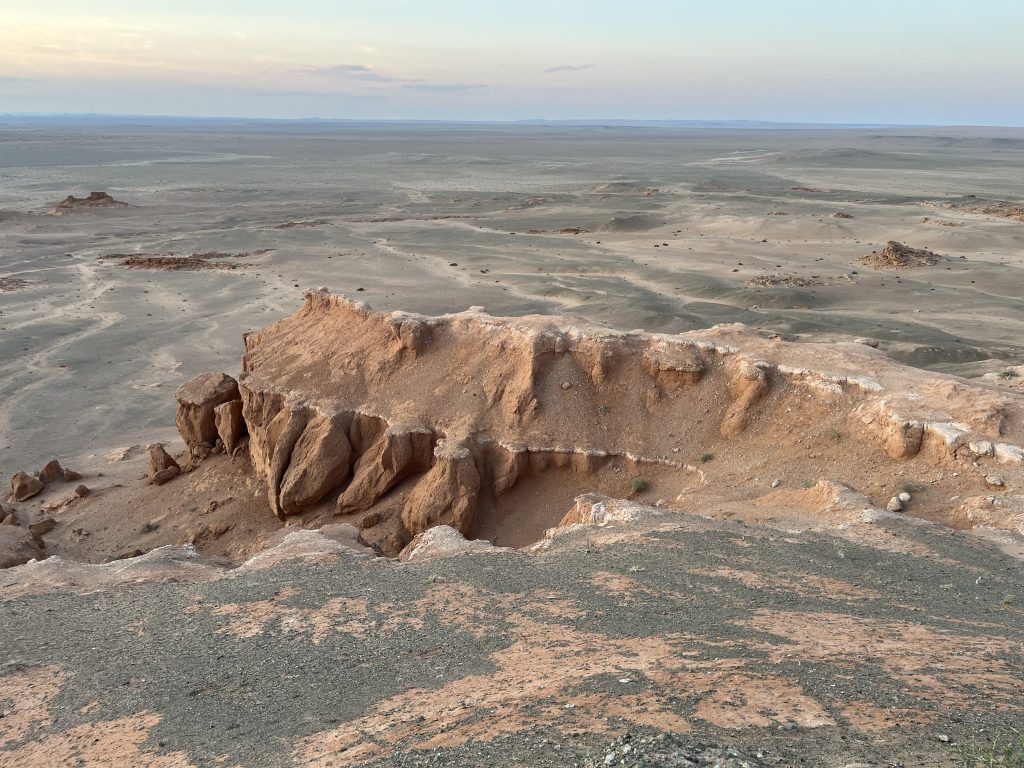
In the afternoon of Day 9 of the tour we had obviously entered the Gobi (or Govi) Desert. Two days ago, we were wearing layers of down and possum, now we are in t-shirts and flip flops. We drive to watch the sunset over some dramatic – and dry – landscape where dinosaur bones have been discovered.
The camps here prefer to only run their generators form 7 until 11pm and the beer is tepid. I don’t even bother to ask for ice: they won’t have any. The bar tender wipes the dust from my wine glass before handing it over.
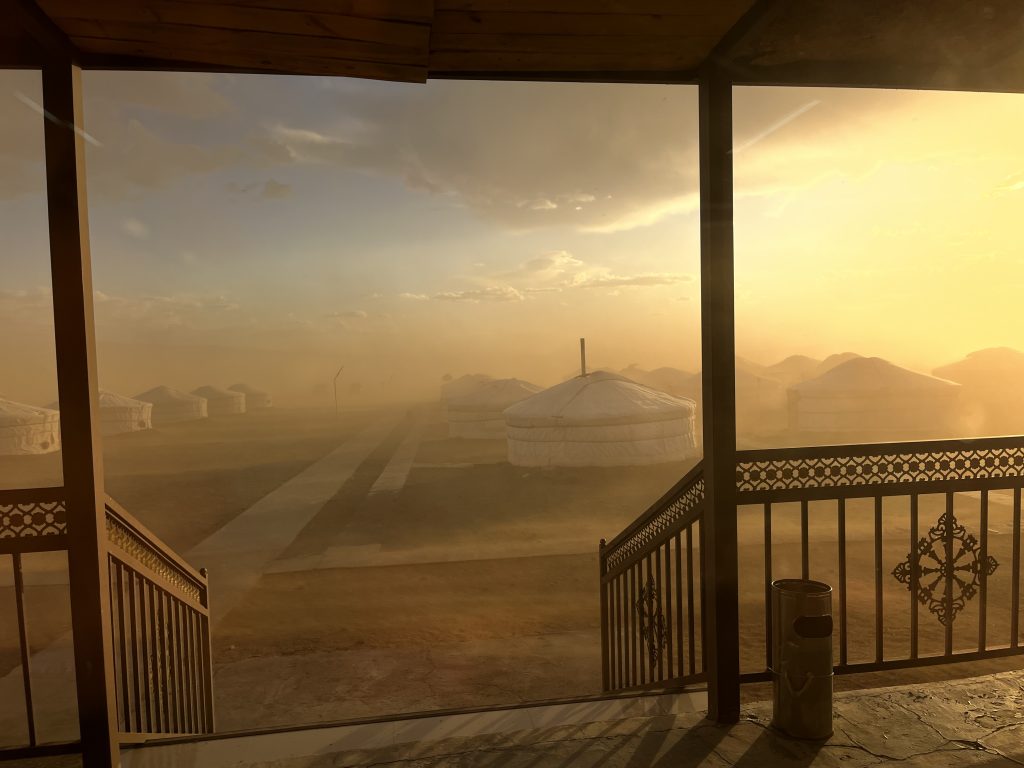
A few times during the evening a squall comes through followed by a brief and light shower of rain. Not even enough to settle the dust. Halfway through the night a hard easterly begins boiling across the landscape. At 5am I hear a crash and my door flies open. Later I realise, one of the many poles that hold up the ceiling has fallen to the floor along with the solar light attached to it.
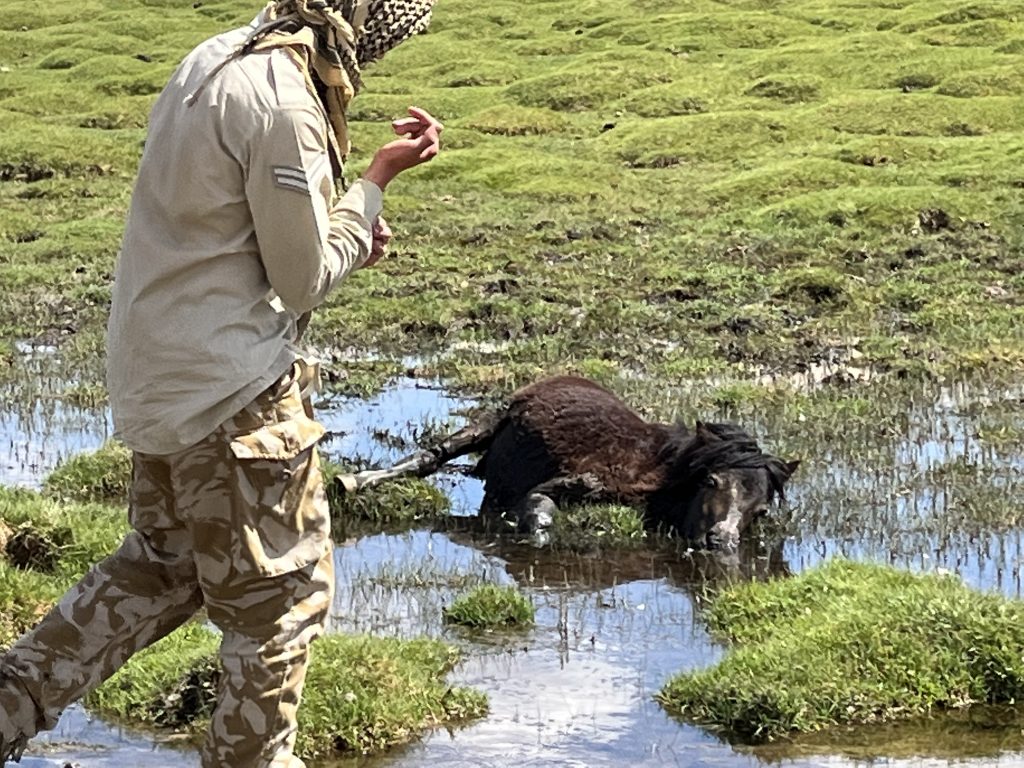
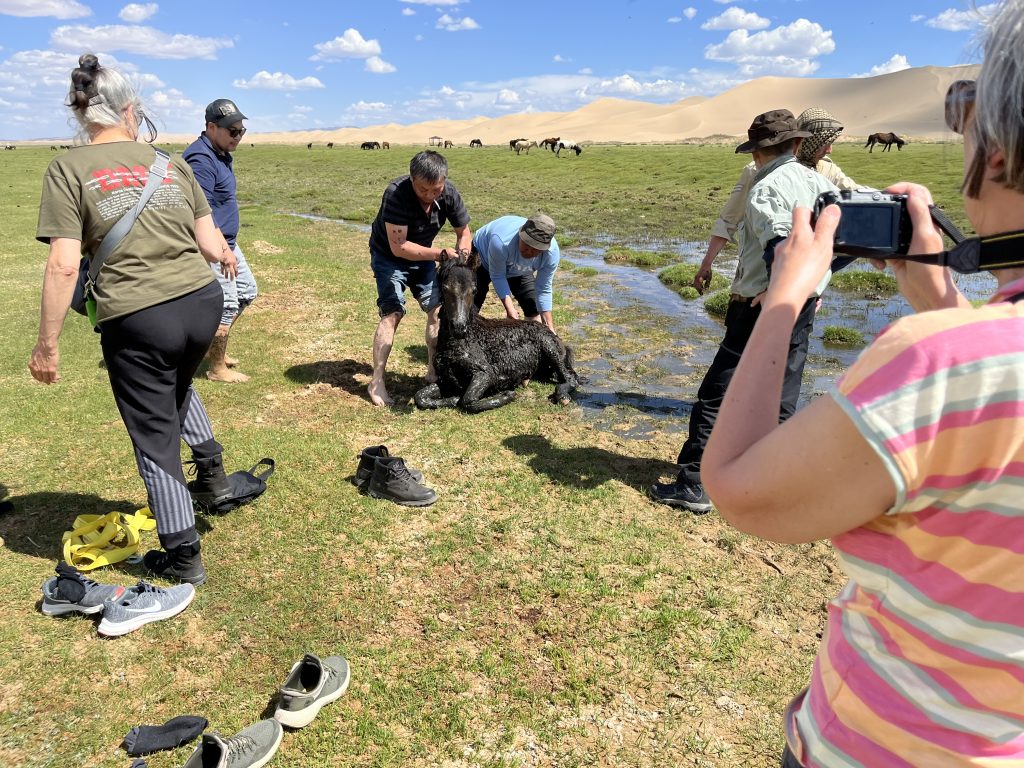
We drive to the ‘Singing Dunes’. They are made of the finest golden sand and rise in perfect scalloped humps on the other side of a stream. As we pull up a young, ragged looking, Polish guy approaches and asks for help. A young horse has fallen in the muddy shore of the stream and is in danger of drowning. The drivers immediately go to his assistance. One of my fellow guests, who always thinks she knows the best way to do everything (including building a ger), gets in the way barking orders. The drivers have, by this time, have had enough of her ‘help’ and ignore her. Slowly, carefully the team pulls the horse away from the stream until the ground beneath him or her is solid enough she might have a chance at standing. Then they encourage her with gentle tugs to her feet and shaking she realises she’s on the wrong side of the stream to her herd but manages to pick her shaky way across to join them. Then we climb the dunes. They sing.
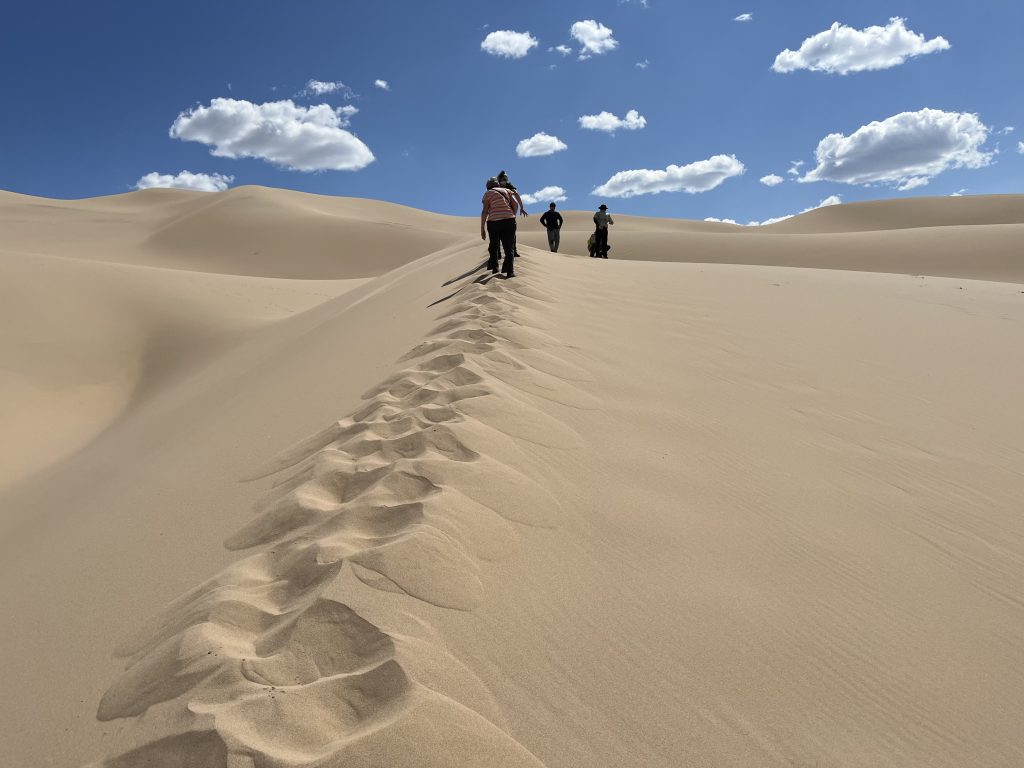
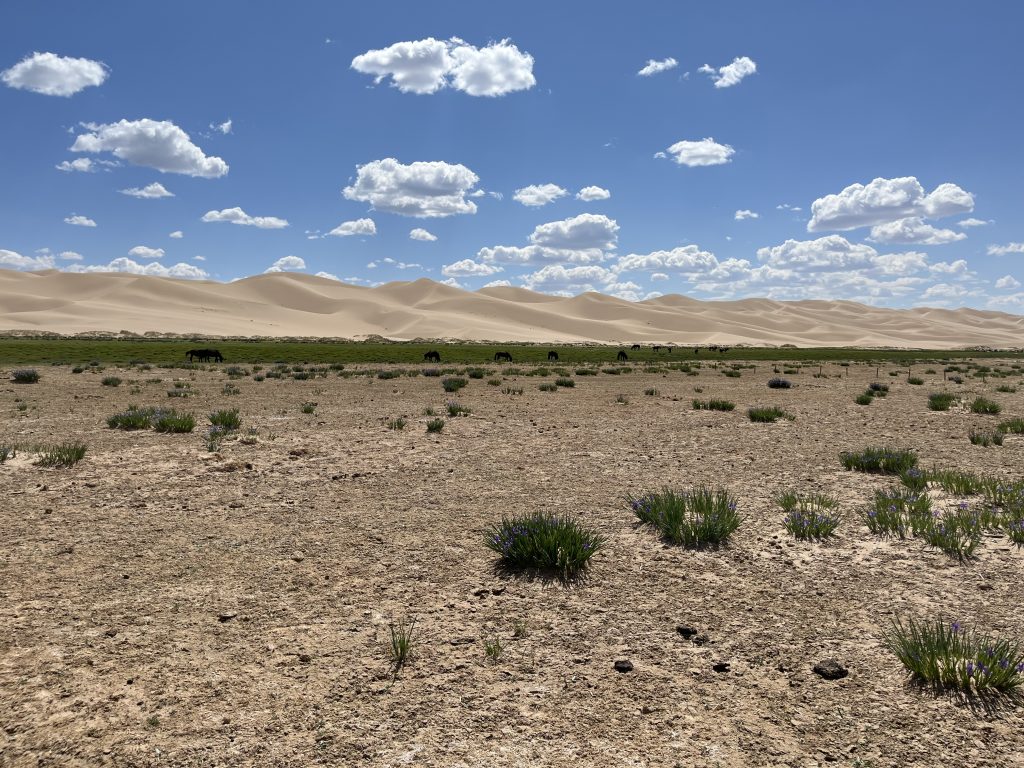
By the end of the trip the woman who was more than bossy, more than demanding, plain rude and possibly clinically narcissistic, had alienated every member of the tour group so profoundly none of us could bear to even say goodbye (she is not pictured). But apart from her, the tour was great, the staff exceptional and I commend Mongolia to you as a destination.
